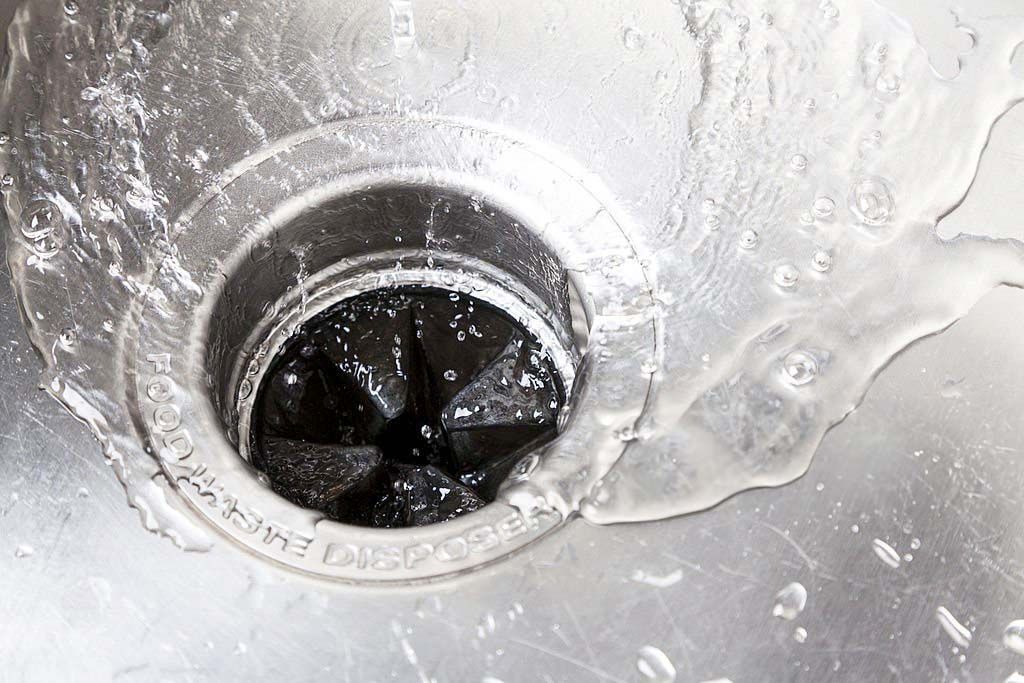
How to Prevent Garbage Disposal Clogs
There’s no denying that garbage disposals come in handy. Just scrape off your plate after a meal, and most food waste disappears. However, disposals can quickly run into issues if not used correctly or if you ignore their maintenance. Like any appliance, maintenance is key to keeping the unit in good working condition. Failure to do so will eventually result in you searching the internet for how to unclog garbage disposal drains.
So, we thought it might be best to pull together a short list of garbage disposal maintenance tips that can help prevent clogs and extend your garbage disposal's life.
Watch what you put down the drain
Knowing what you can and can’t put down the garbage disposal drain tops the list of all the things you can do to prevent clogs. Certain items are not suitable for disposal, and that includes:
- Coffee grounds
- Pasta
- Eggshells
- Bones
- Oatmeal
- Nuts
- Onion peels
- Potato peels
- Pumpkin
- Fruit pits
- Corn husks
- Seafood shells
- Paint
- Cleaning chemicals
Some of these items have long been said to deodorize the garbage disposal drain or sharpen its blades. But that’s not the case, and it can quickly lead to a stopped-up sink.
Mind the size
Even if certain foods are disposal material, the appliance does have its limits. Preventing the tedious task of unclogging garbage disposal drains largely depends on the size of the food waste. The smaller, the better. It's best to break down food waste into bite-size pieces before disposal.
Use cold water
Hot water may soften fats, oils, and grease, allowing them to pass through the garbage disposal, only to cool and solidify within the pipes later. This can build up over time and cause a backup later. If the sludge becomes a major blockage, you may need professional pipe cleaning services to remedy the problem.
Cold water, however, can help you avoid the build-up altogether. It solidifies the fats, oils, and grease in the garbage disposal drain, which can be ground down into a finer substance. Run the water for about a minute to move the waste through the pipes.
Run the disposal regularly
The gears inside the garbage disposal can corrode or rust if left unused for extended periods. So, habitually run the disposal regularly to keep the parts in good working condition and prevent any food waste from accumulating. If you have nothing to dispose of, consider throwing in a few cubes of ice. It can help sharpen the blades, remove food waste (as well as odors), and ensure the disposal is ready to use when needed.
Clean the disposal regularly
Periodic cleaning is essential for good garbage disposal maintenance. First, cut off the power to the unit and remove any physical debris within the chamber. Once clear, pour a homemade cleaning mixture of one cup of vinegar and a half-cup of baking soda down the drain. If you have an old toothbrush handy, scrub the flap and interior to remove food debris and kill odor-causing bacteria. Return power to the unit, toss a few ice cubes with some rock salt (about a cup) and run the disposal for a minute. However, it's important to note that while using baking soda and vinegar is effective for cleaning, put salt down the drain is a bad idea. This process, including pouring salt down your drain, can cause harm to the disposal system and plumbing by potentially corroding the components.
Listen
Another aspect of good garbage disposal maintenance involves listening. If it’s making an odd sound, something might be wrong.
For example, garbage disposal humming can indicate that food waste or some foreign object prevents the impeller plate from running. Cut off the power and feel inside to determine whether an object has entered the unit. If not, go under the sink and use the Allen wrench that comes with the appliance to physically turn the blade back and forth to free whatever has gotten stuck. Test the disposal. If that doesn’t work, press the reset button on the bottom of the unit. Test again. Still no change? Then, it’s probably time to call a plumber. However, pouring salt down your drain or using abrasive substances can exacerbate the problem, potentially damaging the disposal system.
Loud or unusual noises, on the other hand, could indicate something wrong with the garbage disposal air switch — if you have one. Air switches are usually installed on the kitchen countertop, and that noise may result from a detached hose, improperly secured button, or the hot water dispenser malfunctioning. If you see any visible problem, it may just be a matter of tightening the problematic component to get the disposal up and running. If not, then call a plumber.
The team at Superior Plumbing and Pipe Lining is here to help. If you’re having issues with your garbage disposal or your sink is backing up, please get in touch with us today.
FAQs
What causes a garbage disposal to clog?
Common causes of clogs include putting fibrous foods (like celery or corn husks), grease, coffee grounds, eggshells, or starchy items (like pasta or rice) down the disposal. These materials can build up and block the drain.
Can I put food scraps in the garbage disposal?
Yes, but only certain types. Soft food scraps are generally safe, but avoid hard, stringy, or starchy foods, which can lead to clogs or damage the blades.
How can I keep my garbage disposal from clogging?
To prevent clogs, run cold water while using the disposal, avoid overloading it, and dispose of problematic items (like grease or bones) in the trash instead.
Why should I use cold water with my garbage disposal?
Cold water helps solidify any grease or oils, so they can be chopped up and flushed through the pipes more easily. Hot water can melt grease, which may later harden and clog the drain.
Is it okay to use chemical drain cleaners in a garbage disposal?
No, chemical drain cleaners can damage the disposal’s components and pipes. Use natural cleaners like baking soda and vinegar or consult a plumber for safe options.
How often should I clean my garbage disposal?
It’s good practice to clean your disposal once a week using baking soda and vinegar or citrus peels to remove odors and buildup.
Can I put ice in my garbage disposal?
Yes! Ice cubes help sharpen the blades and dislodge any stuck debris. Drop a few cubes in and run the disposal with cold water for a quick clean.
Should I avoid using my garbage disposal altogether?
Not necessarily. Garbage disposals are very useful when used properly. Just avoid overloading it and don’t use it as a trash can for all food waste.
How long should I run the water after using the garbage disposal?
Run cold water for at least 15–30 seconds after turning off the disposal to help flush the remaining debris through the pipes.
What should I do if my garbage disposal starts to drain slowly?
Try flushing the system with a mixture of baking soda and vinegar followed by hot water. If it still drains slowly, the clog may be deeper in the pipe and require professional help.
